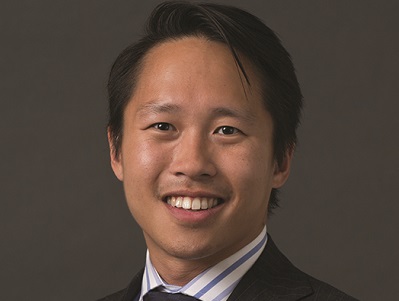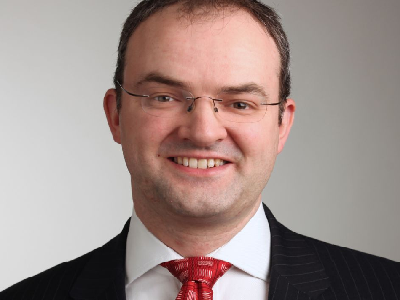R2 Semiconductor and Intel take chip battle to London
The High Court of Justice in London is today's setting for the next round of patent litigation between Intel and R2 Semiconductor, with the former defending itself against another infringement suit filed by R2. In February, the Düsseldorf Regional Court handed down an injunction against Intel, while courts in Italy and France are also gearing up to host proceedings in the coming months.
16 April 2024 by Amy Sandys
R2 Semiconductor and Intel are currently engaged in a Europe-wide battle over on-chip voltage regulators, which are features of the latter company’s portfolio of mobile phones, laptops and server-processor chips. Today, the UK High Court in London will commence a two-and-a-half-week trial, with Richard Hacon as presiding judge.
Talking chips

Nicola Dagg
The court has categorised the case as a number five, which is the most complex among UK patent proceedings. The UK case originally proceeded on an expedited timetable, with a trial due to take place in September 2023.
However, due to technical complexities, it was rescheduled to take place in April 2024. Intel will rely on detailed modelling evidence given by professor Bram Nauta, with Dr. Schäfer a witness regarding how chips operate. R2 Semiconductor has also applied to amend claims of the patent.
The patent in question, EP 3 376 653 B1, relates to overvoltage protection for a switching converter in an integrated circuit unit. R2 Semiconductor develops high-frequency semiconductor technology for power management; for example, EP 653 covers voltage-regulation technology.
Pending in Germany
R2 Semiconductor claims that the ‘fully integrated voltage regulator’ technology present in many of the last three generations of Intel processors, including in Intel’s Core and Xeon chips, infringes EP 653. Intel has counterclaimed for revocation.

Daniel Lim
In German proceedings in February 2024, the Düsseldorf Regional Court upheld claims made by R2 Semiconductor, finding that certain Intel central processing units (CPUs), embedded in electronic devices, infringe the claimant’s patent.
On 8 March, the Düsseldorf Higher Regional Court then denied Intel a pause on the injunction pending the validity case. The judges will hear this in October 2024.
According to JUVE Patent information, Intel’s case will focus on the German court relying on an inaccurate model. In the German proceedings, HP, Dell and HPE, as Intel’s customers, are all involved in the case as defendants.
Elsewhere in Europe
Intel had issued a counterclaim for revocation at the German Federal Patent Court (case ID: 4Ni 14/23). In December 2023, the court issued an opinion stating that there was a high chance it would find the patent valid. Currently, the Intel sales ban remains in place in Germany.
In the meantime, R2 has also sued Amazon and Fujitsu at the city’s regional court. Seeking an injunction, the company claims that the defendants are using the infringing Intel chips in their products.
In a press release, R2 CEO David Fisher said at the time, “R2’s integrated voltage regulation technology is critical to Intel’s products… yet R2 receives no recognition or compensation for our innovation. We are fully prepared to enforce the injunction in Germany and look forward to the chance to demonstrate that Intel’s products should be similarly enjoined, and damages paid, in the UK.”

Andrew Moir
Fisher continues, “It is unfortunate that we must now seek further relief in other European countries, like France, but Intel seems intent on fighting in court as opposed to doing the right thing.”
Intel has also filed a claim of non-infringement of the Italian part of EP 653 in Italy. Furthermore, on 8 April, R2 Semiconductor also announced that it had filed a patent infringement claim at the Paris Judicial Court against Intel, as well as against its customers HP, Dell and HPE. However, the patent holder opted the patent out of the Unified Patent Court.
US companies in London
In the UK, a team from international firm Herbert Smith Freehills is leading the charge for R2 Semiconductor. Partners Andrew Moir and Andrew Wells are running the team, working closely with the company’s German advisors from across Bardehle Pagenberg and Eisenführ Speiser. In Hamburg, partner Volkmar Henke led for Bardehle, working alongside the firm’s own patent attorneys in Munich, including partner Tobias Kaufmann.
A mixed Eisenführ partner team in Hamburg, comprising of litigator Sönke Scheltz and patent attorney Stefan Wiethoff, worked alongside one of the firm’s Berlin-based partners, Ludger Eckey. Eisenführ conducted proceedings against Dell, which were also involved alongside Intel.
 In London, a team from the London office of US firm, Kirkland & Ellis, represents Intel. Partners Daniel Lim and Nicola Dagg are running the case for the US manufacturer. While Intel has long relied on the US-based Kirkland team, the instruction against R2 Semiconductor demonstrates that the firm is becoming a top choice for the company in the UK, too.
In London, a team from the London office of US firm, Kirkland & Ellis, represents Intel. Partners Daniel Lim and Nicola Dagg are running the case for the US manufacturer. While Intel has long relied on the US-based Kirkland team, the instruction against R2 Semiconductor demonstrates that the firm is becoming a top choice for the company in the UK, too.
In Germany, European IP boutique Hoyng ROKH Monegier works for Intel, having previously represented the latter company in Europe. In Italy, Trevisan & Cuonzo act for Intel, with Vittorio Cerulli Irelli the lead partner. JUVE Patent cannot confirm which firm is acting for R2.
For Intel
8 New Square (London): Andrew Lykiardopoulos
11 South Square (London): Anna Edwards-Stewart
Kirkland & Ellis (London): Nicola Dagg, Daniel Lim (both partner)
For R2 Semiconductor
11 South Square (London): Brian Nicholson, Adam Gamsa
8 New Square (London): Edmund Eustace
Herbert Smith Freehills (London): Andrew Moir, Andrew Wells (both partners); associates: David Webb, Monika Klajn, Tim Gollan, Sabesh Asokan, Amelia Chammas
High Court of Justice, London
Richard Hacon (presiding judge)